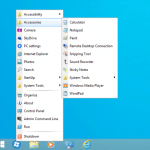The challenges of compliance in an as-a-service world

Software-as-a-service (SaaS) is rapidly replacing applications that were once hosted on-premises. There are compelling reasons for switching to SaaS. Costs are lower, there’s no in-house equipment or software to deal with, and no updates or patches to manage. Organizations are obviously aware of the advantages. Experts at Gartner estimate that SaaS global revenue will exceed $94 billion in 2019, up 18.5 percent over 2018. The outlook for future growth is even more promising, with projections that revenue will soar to $143.7 billion by 2022.
But the as-a-service model raises a critical issue facing organizations: compliance with GDPR, HIPAA, the California Consumer Privacy Act (CCPA), Sarbanes-Oxley and other regulatory schemas that govern company data. Who owns the data and is responsible for compliance? What should customers expect from SaaS vendors?
Best Windows 10 apps this week

Three-hundred-and-seventy-three in a series. Welcome to this week's overview of the best apps, games and extensions released for Windows 10 on the Microsoft Store in the past seven days.
Microsoft released a new build of the upcoming version of Windows 10. It features a heavily updated Calendar application and improved graphics settings to make it easier to control which GPU apps run on.
CORSAIR SCIMITAR RGB ELITE gaming mouse has a dozen thumb buttons

Last year, we told you about the Logitech G604 LIGHTSPEED -- a gaming mouse with six thumb buttons. For many folks, a half-dozen thumb buttons would be overwhelming. Well, today, CORSAIR launches a mouse that is even crazier than Logitech's. The "SCIMITAR RGB ELITE," as it is called, has a dozen thumb buttons!
The number of buttons (there are 17 that are programmable) isn’t the only exciting N.H. thing about this wired mouse, however. Also interesting is it’s impressive 18,000 DPI and customizeable RGB lighting. Oh, and it looks really cool too!
Selectively revealing yourself to the world -- Privacy in the 21st century

Fifteen years ago, if you wanted to join Facebook (then The FaceBook), you needed a valid college email address and the site did not offer much more than study group meetups or a place to chat and share pictures with high school friends. Today, Facebook is a juggernaut with roughly 2.5 billion monthly active users -- and as one of the world’s largest ad platforms, the amount of data it has on its users is staggering. But in 2018, the Cambridge Analytica breach profoundly shook users’ confidence in the social network -- and the entire tech industry as well. Since the scandal, there have been Congressional hearings, lawsuits, antitrust concerns and even the complete demise of Cambridge Analytica. But the questions did not end there -- consumers began to question how all big tech used their data. Why does Google track people’s location even if they have turned tracking off? Is Alexa recording my private conversations?
Thanks to the fallout from the Cambridge Analytica scandal, and the endless stream of data sharing scandals since, consumers are more aware of their online privacy and are beginning to question how companies are monetizing their data. Let’s look at how the rise of social media created this data economy, the tech industries attempt to regulate itself and how the U.S. government is woefully unprepared to address modern privacy challenges. How do we progress in a world where every detail of our days are tracked?
Red Hat OpenShift Container Platform becomes available on IBM systems

IBM and Red Hat have revealed the latest fruit of their tie-up with the announcement of general availability of Red Hat OpenShift on IBM Z and LinuxONE systems.
Red Hat is already a leader in hybrid cloud and enterprise Kubernetes, with more than 1,000 customers already using the OpenShift platform to manage containers.
A new Ubuntu Linux LTS is now available

There are two types of Ubuntu users -- brave ones willing to use bleeding edge variants of the Linux-based operating system, and weak ones that stick with the Long Term Support versions. Of course I am just kidding; there is absolutely nothing wrong with using LTS variants of Ubuntu. In fact, it is actually quite wise -- especially for business users -- since it focuses on stability and compatibility. Even home users should probably stick with LTS, as long support can be preferable to having the new "shiny" version. Personally, I like to go with whatever is the newest -- support length be damned -- but I digress.
Now, Canonical is releasing the newest version of its LTS Linux-based operating system -- Ubuntu Linux 18.04.4. Yeah, it is just a point release, and not 20.04 LTS (which will arrive in April), but still, it would be a good idea to update your installation media. It isn't just the normal version of Ubuntu being updated -- which uses the GNOME desktop environment -- but other flavors too. For instance, Kubuntu, Xubuntu, Ubuntu MATE, Lubuntu, and Ubuntu Budgie are all being bumped up to 18.04.4.
Cybercriminals exploit coronavirus fears to spread malware

January's Global Threat Index from Check Point Research shows that Emotet remains the top threat for the fourth month in a row. But it’s now being spread by a spam campaign exploiting people's worries about the coronavirus.
The emails appear to be reporting where Coronavirus is spreading, or offering more information about the virus, encouraging the victim to open the attachments or click the links which, if opened, attempt to download Emotet on their computer. Emotet is primarily used as a distributor of ransomware or other malicious campaigns.
Windows 10 users are losing user profiles and desktop files thanks to KB4532693 update bug

It's been while -- at least a few days -- since Microsoft released a problematic update for Windows 10, so we were probably about due another one. And sure enough, this week's KB4532693 update is causing issues for people.
Released two days ago on February's patch Tuesday, the cumulative update KB4532693 is loading the incorrect profile for users, and hiding files stored on the desktop.
Facebook claims there are 2 billion WhatsApp users

WhatsApp is a wildly popular chat program globally, but in the USA, not so much. Don’t get me wrong, there are many Americans that use it, but it is far more ubiquitous in other countries such as India, for instance. In the USA, SMS and iMessage seem to reign supreme.
Today, the social network Facebook — which owns WhatsApp — is celebrating a huge milestone. You see, the company is claiming there are now 2 billion people using WhatsApp.
Mobile World Congress canceled over coronavirus fears

In a move that probably won’t come as a big surprise to many people, this year's Mobile World Congress (MWC) -- the world’s largest mobile phone showcase -- has been canceled due to coronavirus concerns.
MWC was due to be held in Barcelona on February 24-27, but over the past couple of weeks or so, many of the world's major tech firms have pulled out of the event, including BT, Cisco, Facebook, Amazon, Deutsche Telekom, Intel, LG, Sprint, and Vodafone.
Microsoft releases Windows 10 Build 19564, updates Calendar

Today, Microsoft rolls out the latest Windows 10 Preview build to Insiders on the Fast ring.
Build 19564 includes some graphics settings improvements and updates the Windows Calendar app. In addition, when you install Build 19564.1000, you’ll be offered Build 19564.1005 (KB4541095) as a Cumulative Update via Windows Update. This is designed to help Microsoft test its servicing pipeline.
Add the classic Windows XP Start menu to Windows 10

The Windows 10 Start menu gives you easy access to all of your programs and important settings, and -- for now at least -- optional Live Tiles. The search box makes it easy to find what you’re looking for too... when it works.
But if you hanker for the days when Start menus were simpler, you might want to consider adding a Windows XP style menu to Windows 10.
Election scams get creative and voters take the bait

The upcoming US presidential election is wrought with emotions. That makes it the perfect ruse for email scams targeting citizens, politicians, and government organizations. While election phishing is the top concern, there are a host of other scams that are making the rounds.
Your favorite politician -- or the one you’re most likely to vote for -- needs money to successfully run their campaign. Hackers are relying on our devotion not only to politicians but to our affiliated political party to lure us into a trap.
Six keys to successful digital transformation

Digital transformation is a prime objective for many businesses, with 93 percent of enterprises undergoing some kind of project according to a new report.
The survey conducted by Hanover Research and commissioned by digital platform company AHEAD shows these efforts are driven primarily by a desire to cut costs (77 percent) and improve customer experience (71 percent).
Avast under investigation for the sale of personal data to third-parties

It’s fair to say that Avast has been engaging in some rather sketchy behavior over the past couple of years. These include a privacy controversy with CCleaner back in 2018, and then a couple of weeks ago it was revealed that Avast Free Antivirus was sending browser history to marketers.
After attempting to defend its data gathering and sharing practices, Avast finally apologized and shut down its marketing analytics subsidiary Jumpshot with immediate effect. But it seems that isn’t the end of the matter as far as the Czech authorities are concerned.
BetaNews, your source for breaking tech news, reviews, and in-depth reporting since 1998.
© 1998-2025 BetaNews, Inc. All Rights Reserved. About Us - Privacy Policy - Cookie Policy - Sitemap.




